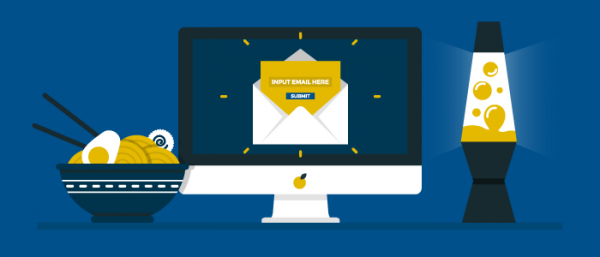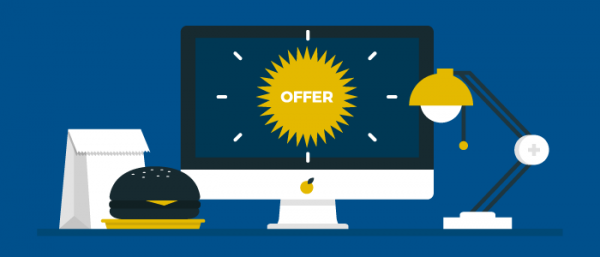You can make big money fast using Google to drive targeted website traffic – if you avoid these common AdWords mistakes

We’re often guilty as charged in spending 80 to 90 percent of our website efforts getting users to download free reports and convert to email subscribers.
Yet, an important component, which can lead to 20% or more of revenue, should be targeting a direct impulse buyer looking to make a transaction.
We don’t always talk about this directly, but it’s important to bring people to your website who are ready to buy.
[text_ad]
For any publisher with high priced products, AdWords can be a positive part of the marketing mix. To see if AdWords is right for you, select some keywords related to your products.
Some of you may be familiar with the multiplatform publishing company case study that we use for teaching the Mequoda Method – Green Gardens Network (GGN). It’s a composite case study of all our Gold Members so that we may talk about benchmark numbers without identifying any of our clients individually.
The Green Gardens case study is very robust – they publish content to help people be better gardeners and this content comes in the form of a multiplatform magazine, books, videos, and live events that are essentially domestic and international garden tours. So, to confirm AdWords would make sense for GGN, we’d research the Google Keyword Planner Tool to see if anyone was searching for premium information products related to our topics, like “azalea books”, “rose growing course”, “tulip DVD” or “garden tours”.
This way, we’re identifying individuals who are searching for information in a premium format and expecting to pay for it.
Google fundamentally knows the difference between an information search and a product search. Someone conducting an information-based search will see a different set of organic results than when conducting a retail-based search. This is the case for most consumers looking to buy a specific format type – event, book, video, DVD, magazine, etc.
When they are using product names or types in the search query, they are typically looking to buy.
Using paid media to drive traffic into an online store is key to a well-rounded strategy.
Using AdWords to build email subscription lists

Some publishers use AdWords to build their email list as they’ve run campaigns primarily for free reports. Searchers would see that there is a free report offered by a website on the topic of interest and go to retrieve it. In doing so, they’d be required to exchange a valid email address to get the free content.
This email recipient would likely be targeted with follow-up emails promoting aligned premium products that should be of interest to them, due to their desire in downloading the free report.
Even campaigns promoting paid products will help build an email list as products purchased from websites will often ask for a valid email address to send a confirmation to.
The top Google AdWords mistakes and how to avoid them

Google AdWords looks easy enough. You choose a keyword phrase, write four short lines of copy (headline, line 1, line 2, URL) and point the clicks at a landing page that converts visitors to customers. What could be easier? Instant targeted website traffic.
While using Google AdWords looks easy, it takes knowledge and hard work to be good at it. But there’s a big payoff. If you follow the advice below and correct just one of the following mistakes, you may find that your response and revenue doubles or even triples – overnight.
Not split testing.
The marketer who gets the most profitable Google PPC traffic will be the one who tests copy and gets results the fastest. There are so many different copy combinations you can use, but your goal is to get to the best-performing ones as fast as you can. And if you let your tests run too long, you’re wasting valuable time that could be used serving up the better performing ads.
Not aligning keywords with ad copy.
In all search marketing, it usually pays big rewards to repeat the user’s keyword search phrase in the search results and to do your best to make sure the ad copy is answering the question they are asking. For example, if the user searches for “lower cholesterol” give them a Google ad like “Lower Cholesterol Today!” and not “Heart Attack Prevention Secrets.” The second ad may be relevant but it does not use the language you know the user considers important. Google has a function called “keyword insertion”, which is a semi-automated way for Google to try and do it on its own, although it’s not perfect.
Not aligning the ad copy with the landing page copy.
If the Google ad said “Lower Cholesterol Today!,” it’s a good bet that a landing page headline without those three keywords will not convert as well as one that trumpets them proudly. A user takes less than a second to decide to stay when clicking from the ad to the landing page. Make sure they know immediately that the path is contiguous.
Buying low-volume keywords.
Don’t bother with keyword phrases that have less than a few hundred to a few thousand impressions per month. Most of those puppies can be targeted organically. Go after the keywords you don’t have a chance to land with basic on-page SEO.
Not paying attention to conversions.
The ad with the most clicks may or may not be the ad that generates the most leads, orders, and customers. You need to make fully informed decisions – which means you must track the transaction through at least the conversion. One of our clients recently tested two event landing pages where one of the versions appeared to be the winner, with clearly higher goal conversions to download the brochure. But when we looked deeper, the “winner” was getting more people to download the brochure for the event, but the control actually converted more people into event attendees.
Not spending enough time on your best performing ads.
Time is money, and you’ll never be done optimizing all the Google AdWords campaigns you’re managing. Spend most of your time on the small percentage of keyword campaigns that are bringing in the most traffic.
What have been your biggest AdWords mistakes? Leave a comment.


